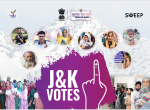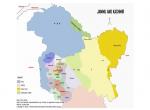The turmoil in Kashmir continues and government’s nerve seems to be cracking. Curfews, police firings, dying protesters have not broken the momentum of the street protests. Pressure to find a “political” solution to the problem has increased, as if the government hasn’t tried to find one in the last 63 years with a frustrating lack of success. This has included accords with leaders like Sheikh Abdullah, organizing of credible elections in recent years to remove the taint of past election-rigging, various dialogue initiatives, overtures to separatists, development outlays for removing the economic roots of Kashmiri discontent etc.
While force used to quell terrorist violence in J&K has badly hurt the civilian population, yet India has restrained its military hand internally. A comparison with the methods used by both China and Pakistan in suppressing challenges to state authority should have been instructive for the neighbouring Kashmiris. Unlike Pakistan’s conduct in Baluchistan and FATA, India hasn’t used heavy military equpment and air power against the Kashmiris, causing massive internal displacement as in the case of the Pakhtoons. China’s suppression of Tibetan and Uighur resistance, coupled with policies to change the demographic complexion of these territories and restrict religious freedom, have obviously not registered on the political mind of Kashmiri population challenging Indian rule. India has been unusually humane in its treatment of Kashmiri separatists, giving them considerable political space despite their abrasive anti-national postures, allowing them to meet India’s external adversaries in its own capital city and travel to foreign countries for garnering political and financial support, tolerating the open alignment of their political strategies with Pakistan, permitting them access to the national media etc. All this has been part of a pressing but doomed search by a democratic India for a political way out of the highly vexed Kashmir problem.
Externally too India has favoured a political solution rather than a military one. Indeed, India gave up the military option in 1947 itself, when rather than expelling the Pakistani invading forces from the whole of J&K, it appealed to the UN for a negotiated political solution. In 1965, confronted with renewed Pakistani aggression, India again chose the political route to finding a solution under Soviet auspices, even restoring the strategic Haji Pir Pass to Pakistan to show political flexibility. In 1971, India had Pakistan on its knees militarily, but, once again, it let long term political considerations over-ride short term perspectives, and sparing Pakistan more humiliation than necessary and trusting it more than prudence dictated, agreed to the ambiguous 1972 Simla Agreement. Vajpayee’s Lahore visit, the decision not to escalate the Kargil conflict by retaliatory action across the LOC, the back channel dialogue with Pakistan under Musharraf’s watch, steps to allow travel and trade across the LOC in J&K, have all been part of a policy of resolving the Kashmir problem “politically”.
The problem has always been what a “political” solution means for the principal actors. India rejects categorically the right to “self-determination” by the Kashmiris. It wants a solution within the parameters of its Constitution, which implies that the Kashmiris must accept that the state belongs to India and no “dispute” over its status exists. Are the Kashmiri separatists and the stone-pelters willing to acquiesce in this? This stipulation probably means that short of secession any viable adjustment in constitutional arrangements with Kashmir can be made. Is there parliamentary support for this? The government is willing to talk to all those in Kashmir who abjure violence. But then, it is not enough that the Kashmiris in J&K abjure violence, those from Pakistan must do also. Is it the expectation that our Kashmiris will repudiate Pakistan supported elements and make a separate peace with India on acceptable terms?
Pakistan has lately begun stressing the Kashmiri self-determination demand as part of its more aggressive posture towards India under General Kayani, though it knows India will never agree. What Pakistan might ultimately agree to is some form of shared sovereignty over parts of J&K, which was the sense of General Musharraf’s back-channel efforts with India. Pakistan will not settle for the status quo in J&K, and any perception that “making the border irrelevant” would not involve some major compromise by India would be erroneous. It is important to have clarity over this as we are officially projecting the back channel results as positive and want the present Pakistan government to endorse them.
The Kashmiri Muslims see a political solution very differently from India. They harp incessantly on “azadi”, which literally means independence, but is interpreted as an amorphous term which could mean “self-rule” and not necesssarily sovereign status. It is supposedly the culminating expression of the Kashmiris sense of alienation from India, their desire to live in dignity, free from repression and over-bearing Indian authority. The assumption here is- and this is echoed by Kashmiri leaders of all hues- that India bears all the resposibility for the prevailing sense of alienation the Kashmiris feel because of its political mistakes, broken promises, the brutality of its security forces etc. The Kashmiris, in this narrative, are hapless victims, driven to desperation by an insensitive and neglectful India. The guilt is all India’s, the victimhood all theirs. While the government feels it is dealing with its own people, the Kashmiri Muslims, by and large, don’t think they are “Indian”.
All Kashmiri leaders are one in claiming that the issues involved are political, not economic. The mainstream leaders want the pre-1953 autonomous status of J&K restored. The “moderate” separatists speak of self-determination, the hardline ones demand patronizingly that as a dialogue pre-condition India must accept that Kashmir is an “international dispute”. The demand for AFSPA’s revision or its removal from selected valley districts- rightly resisted by the armed forces- is a red herring as the current protests have been provoked by police not military action. Any Indian concession under duress will become the baseline for further demands by the Kashmiri Muslims in the next phase of their agitation in an attrition strategy now drawing on globally tested Muslim protest techniques.
Sections of the Kashmiri Muslims has never given up their determined assault on the Indian state. The mosque based politics of their leaders offends India’s secularism; their unwillingness to accept their Indian identity is a prolongation of the two-nation theory. The latest strategy of “stone-pelting”, borrowed from the Palestinian intifada, is not spontaneous. It is an effective movement orchestrated by well organized informal networks that see the Indian government flummoxed in its reaction. Hints of concessions have come from the Home Minister speaking about past promises inscribed in various accords not kept by India. This moral capitulation will only make the Kashmiris more self-righteous in their breast beating. The hardliners are being approached for defusing the situation. Our press is propagating the impression that our security forces have run amuck and are firing on innocent Kashmiris indiscriminately. Most of these coloured stories are from Kashmiri reporters.
We are seeing the reactions of a soft state, persisting in the grave mistakes it has always made in Kashmir. We must deal with the Kashmiri attack on our nationhood more firmly.
The writer is a former Former Secretary
--------------------------------------------
Published Date : September 21, 2010









Post new comment